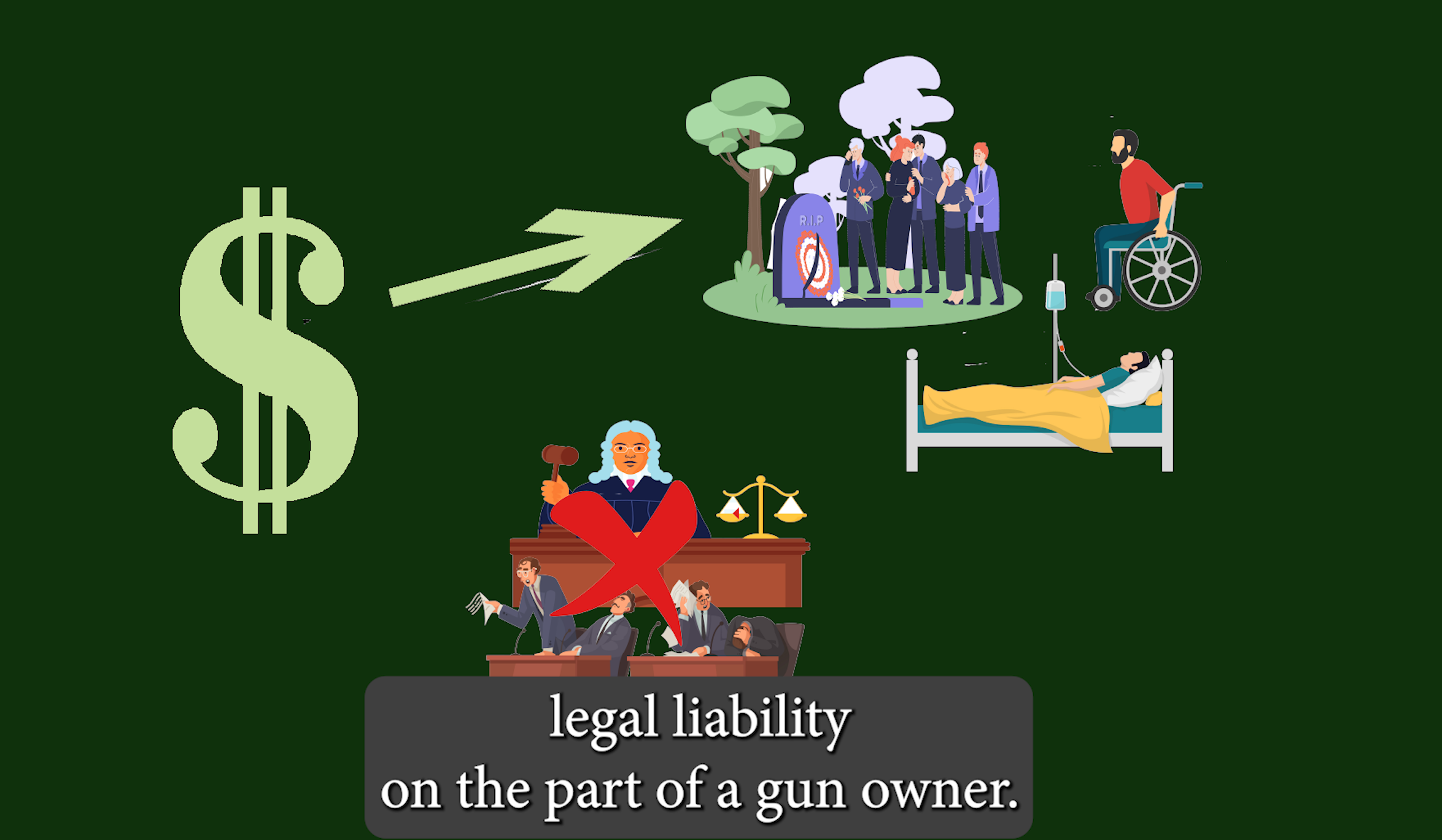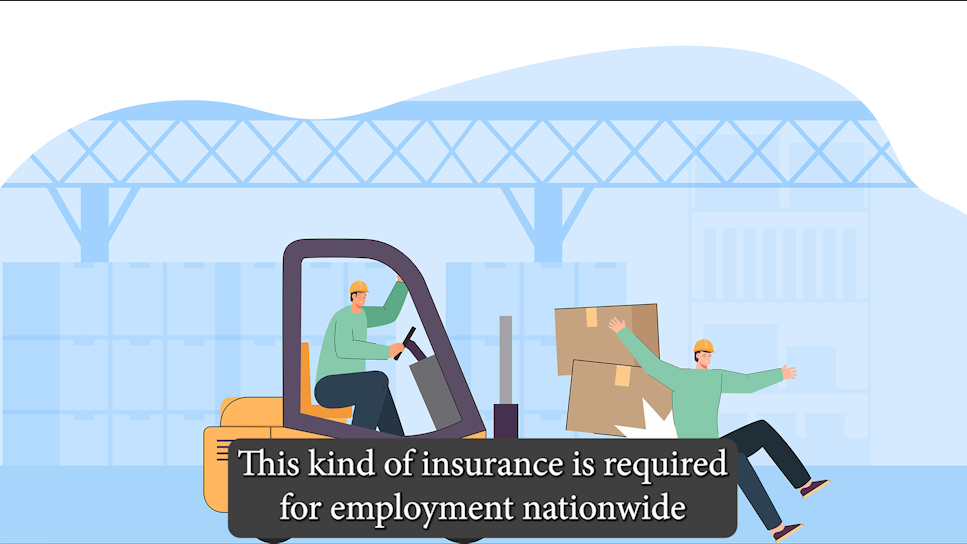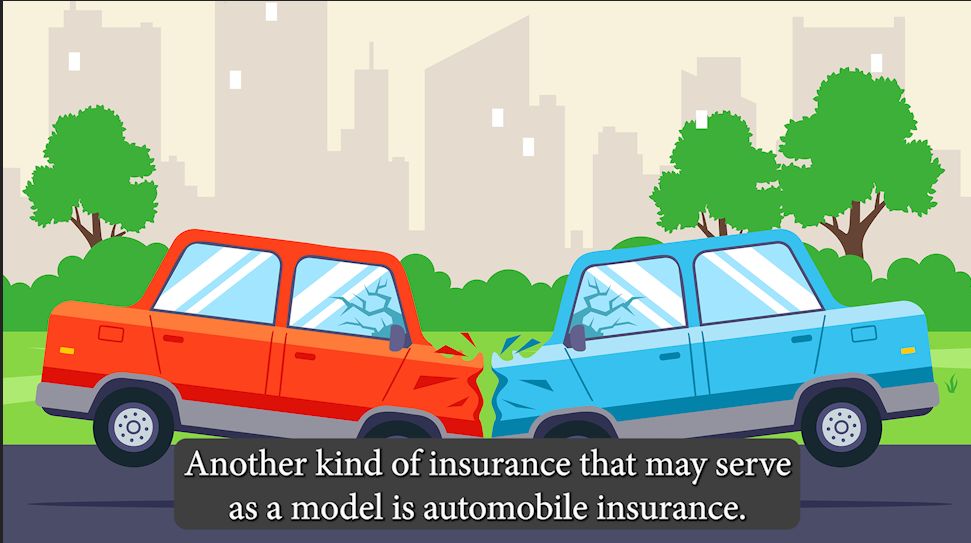Good Gun Insurance pays benefits directly to victims
This has been posted to YouTube. The link is https://youtu.be/yv_zt2-MkJw Take a look.
We need a system of required insurance as a tool to fight the tide of gun violence in this country. The insurance has to be adapted to the needs of the situation, as insurance is in almost every area. It needs to be real insurance to compensate the people who get shot and their families. Insurance designed just to hold gun owners and shooters responsible won’t cut it.
The time has come legislate such a system. There are some principles which would cause the system to work on a practical level, reduce the carnage and mitigate the damages. They include:
- Direct payment to the injured persons, their families and medical providers.
- Insurance that pays on the basis of the injury not fault by the shooter
- Insurance with a system to cover all of the guns

This video is organized by this outline:
- Proper insurance is provided by owners but is for the protection of persons injured
- Provide for many needs
- Medical care, lost wages, support for survivors and death benefits.
- Higher proportion of deaths, but injuries can be severe and require lifetime care
- Workers Compensation and No-Fault Car insurance are better models than liability insurance
- Liability insurance is designed to protect owners and provide defense against victim’s needs.
- Workers Compensation insurance is a good model because it is designed to mitigate many of the losses that workers suffer.
- Automotive liability insurance works only because insurers are on both sides of most incidents. It is better when it is no-fault or for protection of uninsured persons such as pedestrians.
- Direct payment avoids legal barriers and gets money where it’s needed.
- Owner as insured may be ineligible for benefits due to misconduct
- Benefits for owners’ legal defense don’t help victims
- Insurers deep pockets and need to discourage other claims produce an almost insurmountable barrier for victim claims in court.
- Immediate need for medical care makes speed and certainty critical.
- Emergency care quality suffers if payment is uncertain when the care is needed.
- Attempting to repair damage later may be futile
- Survivors may be in desperate financial condition after an incident
SCRIPT
We need a system of required insurance as a tool to fight the tide of gun violence in this country.
The insurance has to be adapted to the needs of the situation as insurance is in almost every area.
It needs to be real insurance to compensate the people who get shot and their families. Insurance designed just to hold gun owners and shooters responsible won’t cut it.
A requirement for good insurance for guns should be designed around getting benefits to persons who are injured or killed.
If its purpose is serious protection to the people who need it this will facilitate adoption and overcome many objections.
This is why gun insurance should pay benefits directly to the people protected.
And,it should NOT be for the purpose of discouraging gun ownership by responsible persons.
There are many kinds of mandated insurance for various activities that have been widely adopted.
The persons who do the activity or own the relevant property are the ones required to have insurance.
But, the beneficiaries are the public or those injured.
This is an important difference between insurance that is required and insurance which is voluntarily purchased. If the insurance only provides secondary benefits to victims, it is much less effective.
There are a variety of needs that can be addressed by good gun insurance.
Medical care is often the first. It is critical and may also be necessary for a very long time.
Injured persons may not be able to work and may require replacement of lost wages.
Survivors may suffer from the loss of the financial support or may have to become caregivers themselves.
Insurance can support education for orphans, pensions for the widowed and death benefits.
Both immediate and long-term needs are recognized by many kinds of common insurance.
Long-term coverage is more important for guns than it is in other kinds of casualty situations.
This is because gunshot incidents have a higher proportion of deaths than other kinds,
but the non-fatal injuries often require lifetime care.
Because most voluntary casualty insurance is structured as liability insurance,
it is the default when most people think about requiring insurance.
But, liability insurance is not a good model for requiring gun insurance. It doesn’t pay victims.
it pays the gun owners for their legal protection.
It exists primarily to protect gun owners and insurance buyers from the consequences of their acts and their guns.
To get benefits, a victim has to establish legal liability on the part of a gun owner.

The insurer’s obligation is to defend the insured and pay only after the loss of a long legal fight.
There are much better models in common use today and they do pay victims directly. Perhaps the easiest to understand is the system for worker’s compensation. This kind of insurance is required for employment nationwide and provides benefits directly to injured workers.

It usually includes lifelong permanent disability and death benefits. It is an example of insurance where benefits only depend on the needs of the beneficiary and that the injury is related to employment. While the coverage from state to state is not seamless.
in practice and in nearly every state the majority of employment is covered. The development of the system began in the nineteenth century and achieved traction in 1917 with a Supreme Court decision concerning its constitutionality.
It deals with a large number of workplace injuries.
about 2.7 million a year vs. about 85 thousand for guns. The well-developed systems in many states for dealing with workplace injuries could easily provide coverage for gun injuries. For fatal injuries.
the ratio is the reverse with 40 thousand annually for guns and about 4 or 5 thousand per year in the workplace.
Another kind of insurance that may serve as a model is automobile insurance.

The ordinary kind, which is a type of liability insurance, may work in the case of cars.
This is because insurers are often are on opposite sides in a 2 car collision and handle such a huge number of claims.
They have worked out private settlement procedures intended intended for efficiency. The benefits of these go both to the insurers and the car drivers.
Guns would be very different.
No-fault and personal injury protection insurance, however, are designed to protect the injured parties.
The insurance payments are directly to the injured parties and bypass liability determinations in the legal system.
There is tremendous variation. but the best kinds would work well for guns.
So. the good kinds of insurance pay directly to victims.
This eliminates the delays and uncertainties of the legal system and has another benefit:
Gun owners in many cases may be disqualified from being covered because of their own misconduct. They may even have engaged in criminal conduct.
But. the victim’s needs still are there and the insurance can not pay.
Insurance that pays to the victims, however, can still be effective.
It is common in many kinds of commercial insurance for third parties wanting protection to demand that a business partner buy insurance that pays regardless of the partner’s actions.
But, again, if it pays benefits for owners’ legal defense that won’t help victims.
In fact. the insurers deep pockets and need to discourage other claims produces an almost insurmountable barrier for victim claims in court.
This is the most serious problem with the liability insurance model.
Over it all, the immediate need for medical care makes speed and certainty critical.
Emergency medicine quality suffers if payment is uncertain at the time the care is needed. Attempting to repair medical conditions at a later time may be futile.
Survivors may be in desperate financial condition after an incident.
If they are to be protected. we need to demand gun insurance that pays victims directly. reliably. and quickly.
